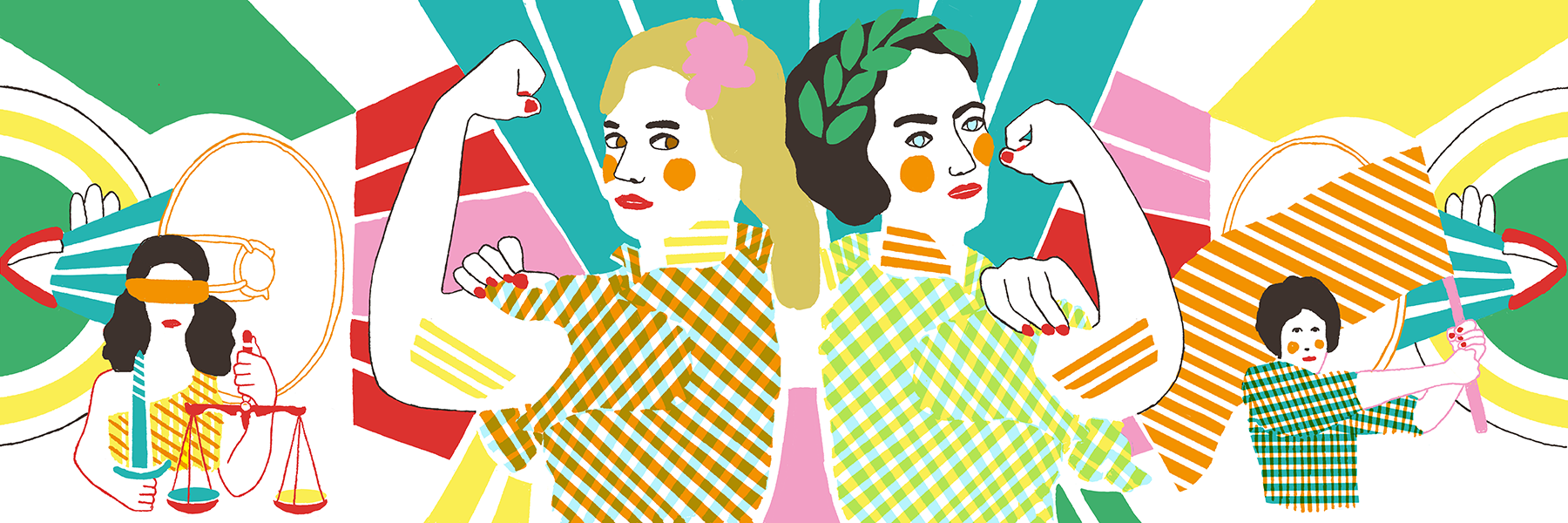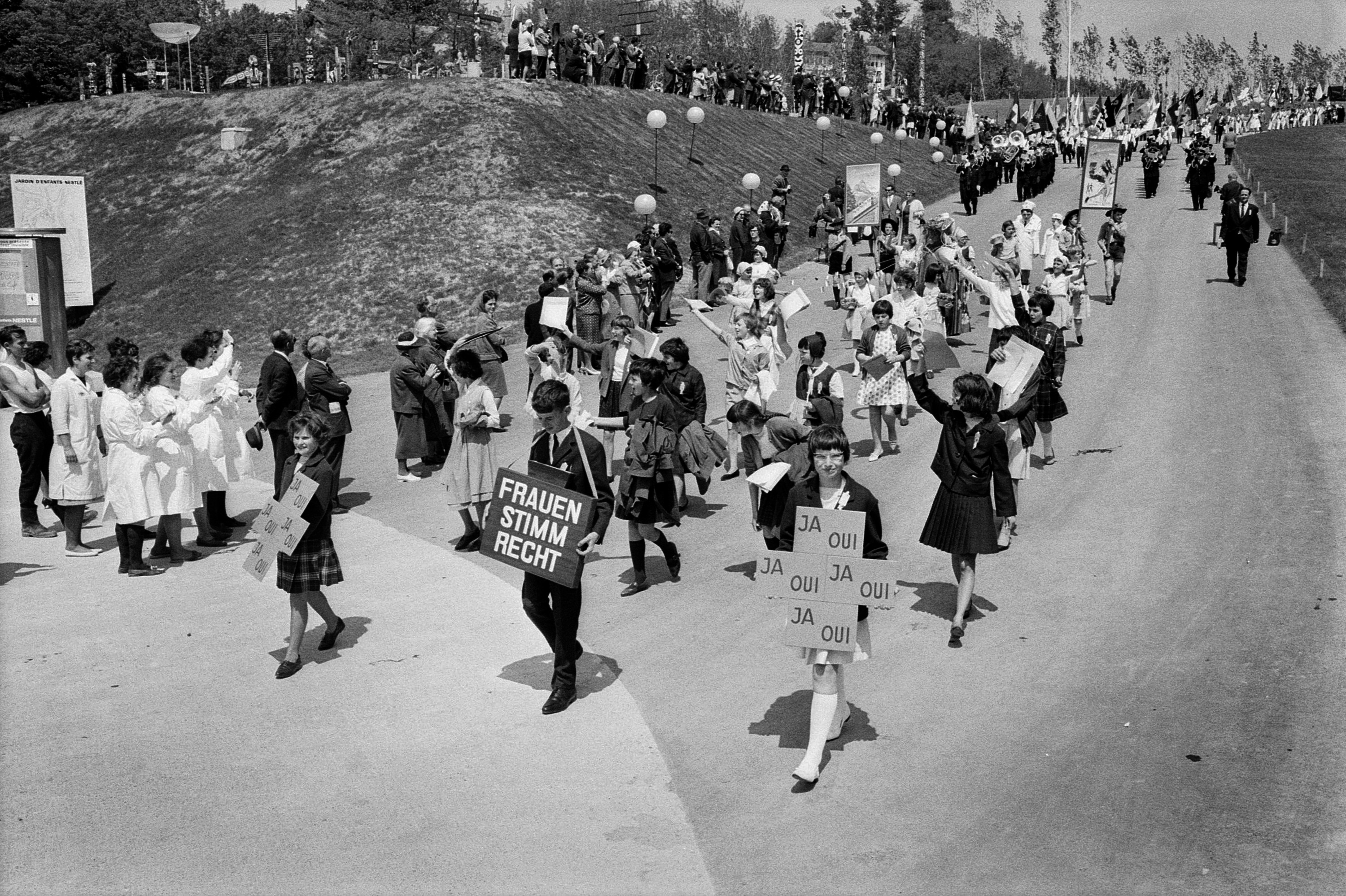The power of voting: still not a matter of course

In this week’s democracy briefing: kicking off SWI swissinfo.ch’s series on 50 years of women’s suffrage in Switzerland.
The idea of universal suffrage is as old as the idea of modern democracy itself. However, although the idea emerged during the American and European revolutions of the late 18th century, it was almost 100 years before female citizens gained full voting rights for the first time – in New Zealand, in 1893.
In Switzerland, things were even slower. Though the country was one of the first to allow all men to vote – in 1848 – it was 123 years before a majority of Swiss males understood that discriminating against the other half of the population was hardly compatible with the concept of universal human rights.
On February 7, 1971 – exactly half a century ago – the men finally banished this dark stain on Swiss democracy, opting to grant women the right to vote. Together with my colleagues in SWI swissinfo.ch’s direct democracy team, we are diving into this issue from today’s perspective, to explore the strange story of Swiss suffrage and to put it in a global context.

From laggard to front runner
- The reporting starts where it all ended, in 1991, in the last Swiss canton to allow women the vote: in Appenzell Inner Rhodes, correspondents Benjamin von Wyl and Nora Hesse met local women for a fascinating insight into the thinking of both sexes now, and at the time.
- Switzerland ranks among the top 20 countries for women in parliament: 41.5% of seats in the House of Representatives in Bern are currently held by women. But this isn’t the same across the whole country. My colleague Jonas Glatthard has worked up a piece looking at comparisons and outlooks for women’s representation in Switzerland and worldwide.
- Elsewhere, to mark the 50th anniversary of the historic vote, institutions and organisations across Switzerland have launched publications, online events and digital exhibitions. A good overview of the selection is offered by the official website ch2021.ch.
In the coming days and weeks, SWI swissinfo will continue to publish additional features, reports and opinions on this topic of suffrage, which by no means ended with the eventual inclusion of women.
Indeed, the power of voting is still contested. In the US, the record high participation in the 2020 general election was accompanied by heated debates about the exclusion of certain groups from the right to vote. In Switzerland too, the idea of extending voting rights to 16-year-olds is under discussion, including in parliament.
Which groups are still locked out of the democratic debate? Join the discussion launched by journalist Renat Kuenzi here.

Deal or no deal: Europe and transnational democracy
Voting rights are one thing, using them efficiently is another. In many countries voting rights are limited to electing others to make decisions, or to be able to run for office oneself. Other countries – a growing number globally – offer citizens the possibility to set the political agenda by launching initiatives and then making decisions in direct votes.
At the European level, this agenda-setting initiative right has been available since 2012, and currently signatures are being collected for 13 different proposalsExternal link, ranging from saving the bees to universal basic income and to tackling climate change.
Among those eligible to use the European Citizens’ Initiative tool, however, the British are no longer part. Exactly one year ago the UK left the EU and now other non-members of the Union are starting to rethink their arrangements with Brussels.
- A recent article I co-wrote with my colleague Sibilla Bondolfi gives an overview of the European strategies of four “near-neighbour, non-member” states – Norway, Iceland, North Macedonia and Liechtenstein. Among others, we spoke to Icelandic Foreign Minister Guðlaugur Þór Þórðarson, who says that for his country, control over its trade arrangements are paramount.

Other stories from the democracy beat
- Financial transactions are one economic activity which – by nature – has been transnational and global for a long time. But they aren’t necessarily always done in the best interests of the many. In Switzerland, Domhnall O’Sullivan has written about a new citizens’ initiative which is trying to get a grip on this.
- Exactly two decades ago, Wikipedia was born. And in contrast to social media giants like Twitter, Facebook and Google, the online encyclopaedia has managed to preserve much of its initial democratic promise, writes SWI journalist Giannis Mavris. But important questions – notably about inclusion and gender balance – remain.
- Finally, the latest global democracy report by the Economist Intelligence UnitExternal link (registration needed to download), was published today. The report confirms the trend that fundamental freedoms are increasingly under threat across the globe, while at the same more and more people are participating in elections and referendums. Find out more about these and other democracy rankings in our focus page on the issue.
Is there anything else you’d like to hear about in the world of democracy? Get in touch with our correspondents Bruno Kaufmann or Domhnall O’Sullivan.

In compliance with the JTI standards
More: SWI swissinfo.ch certified by the Journalism Trust Initiative









You can find an overview of ongoing debates with our journalists here . Please join us!
If you want to start a conversation about a topic raised in this article or want to report factual errors, email us at english@swissinfo.ch.